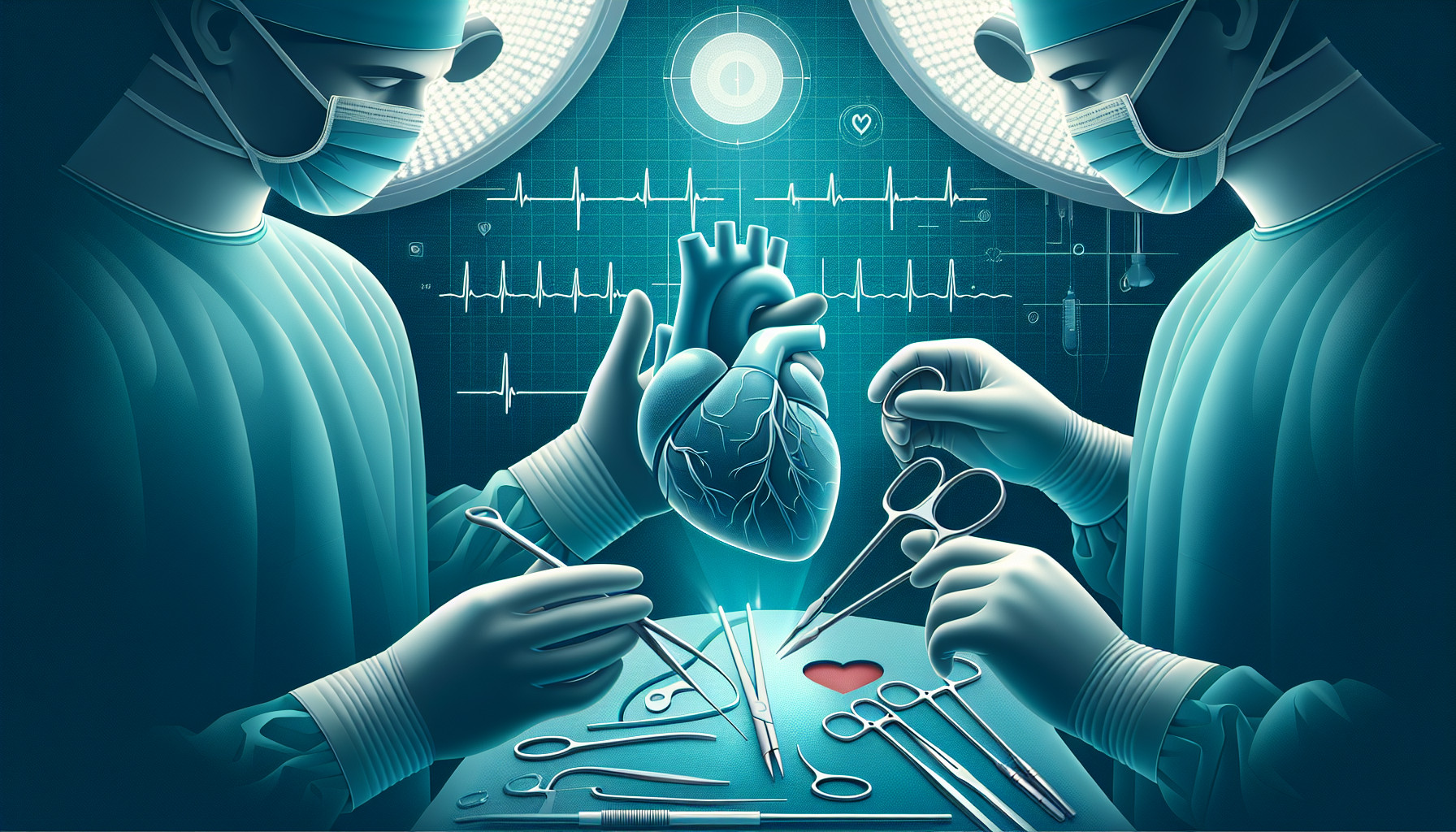Our Summary
This research paper reviews the importance of secondary prevention after coronary artery bypass graft surgery (CABG), a heart operation. Despite the benefits of this surgery, patients are still at risk for heart-related complications in the years following the operation. The paper suggests that using additional therapies after surgery can help improve the outcome for patients and help them maintain a good quality of life. The paper also discusses the latest research in the field. Currently, aspirin and statin therapy are the main methods of secondary prevention after CABG, but other newer medicines are also being studied. Apart from medication, other important factors in prevention include managing high blood pressure, quitting smoking, and starting a heart rehabilitation program.
FAQs
- What is the importance of secondary prevention after a CABG surgery as discussed in this research paper?
- What are the current main methods of secondary prevention after CABG surgery mentioned in the research paper?
- Apart from medication, what are the other factors in prevention mentioned in the research paper?
Doctor’s Tip
A helpful tip a doctor might tell a patient about CABG is to follow a healthy lifestyle, including regular exercise, a balanced diet, and avoiding smoking, to help prevent future heart-related complications and maintain a good quality of life after surgery.
Suitable For
Patients who are typically recommended for CABG are those with severe coronary artery disease, which is caused by a buildup of plaque in the arteries that supply blood to the heart. This can lead to chest pain, shortness of breath, and even heart attacks. CABG is usually recommended for patients who have significant blockages in multiple coronary arteries, especially if they are causing symptoms or if the patient has a high risk of complications. Patients with left main coronary artery disease, which is a blockage in the main artery that supplies blood to the left side of the heart, are also often recommended for CABG.
In addition, patients who have not responded well to other treatments, such as medications or lifestyle changes, may be recommended for CABG. Patients with diabetes, especially if they have multiple blockages in their coronary arteries, may also benefit from CABG. Overall, the decision to recommend CABG is based on a variety of factors, including the severity and location of the blockages, the patient’s overall health, and the potential risks and benefits of the surgery.
Timeline
Timeline of patient experiences before and after CABG:
Before CABG:
- Patient undergoes diagnostic tests, such as coronary angiography, to determine the extent of coronary artery disease
- Patient may undergo lifestyle changes, such as diet and exercise modifications, to improve heart health
- Patient may be prescribed medications to manage symptoms and reduce the risk of complications
During CABG:
- Patient undergoes open-heart surgery to bypass blocked coronary arteries using blood vessels from other parts of the body
- Patient is closely monitored in the intensive care unit after surgery
- Patient may experience pain, fatigue, and limited mobility in the days following surgery
After CABG:
- Patient undergoes cardiac rehabilitation to improve strength and cardiovascular health
- Patient continues to take medications, such as aspirin and statins, to prevent future heart events
- Patient may need to make further lifestyle changes, such as quitting smoking and managing high blood pressure
- Patient undergoes regular follow-up appointments with their healthcare provider to monitor their heart health and adjust treatment as needed
Overall, the timeline of a patient before and after CABG involves a combination of medical interventions, lifestyle changes, and ongoing monitoring to ensure the best possible outcome and quality of life for the patient.
What to Ask Your Doctor
- What is the expected outcome of the CABG surgery?
- What are the potential risks and complications associated with the surgery?
- How long is the recovery period and what can I expect during the recovery process?
- What lifestyle changes will I need to make after the surgery to prevent future heart-related complications?
- What medications will I need to take after the surgery and what are the potential side effects?
- How often will I need to follow up with my doctor after the surgery?
- Are there any specific dietary restrictions I should follow post-surgery?
- What signs or symptoms should I watch out for that may indicate a complication or the need for medical attention?
- Will I need to participate in a cardiac rehabilitation program and if so, what will that involve?
- Are there any alternative or complementary therapies that may benefit me in addition to traditional medical treatments?
Reference
Authors: Kulik A. Journal: Curr Opin Cardiol. 2016 Nov;31(6):635-643. doi: 10.1097/HCO.0000000000000331. PMID: 27583372
